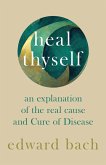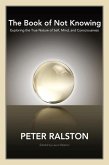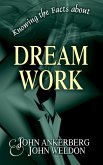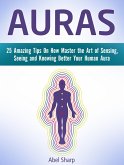Put simply, our surroundings and upbringing often do not encourage us to explore who we truly are. Many of us grow up in environments where our inherent potential is not nurtured, and instead, we are molded to fit into a predefined cultural identity. This process starts from birth, making it difficult for us to distinguish our own identities. Consequently, we often try to define ourselves through external factors such as religion, social affiliations, jobs, and achievements.
This struggle with self-identity leads many to emulate others and conform to societal norms, rather than embracing their uniqueness.
The result is a world filled with individuals who lack a strong sense of self.
Instead of standing out, many blend into the crowd, adopting the identities of others in an attempt to feel important. This explains why trends and fashions hold such sway over us they provide a sense of other identities when our own identities are unclear.
The key to breaking free from this cycle lies in rediscovering our true selves.
We must strive to reclaim the essence of who we are, so that others can identified us before in pack of humanity. This means moving away from the "one-size-fits-all" mentality and embracing the unique gifts trapped on the inside of us that make us who we are. Only then can we truly answer the question, "Who am I?" and carve out our own path in life.
So, the next time someone calls your name, consider what they see in you.
Are you just another face in the crowd, or do you stand out for your authentic self?
The human question"Who am I?" is simple yet complex because we can be very assuming that we know the answer until our assumptions are stripped away and our ignorance is exposed. This question haunts all of us, and the reality is that we do not talk about it at all because we want people to believe we have the answer.
We also do not discuss it too often because we are afraid we cannot answer, yet our lives are made up of this question: "Who am I?" Who are you? It is not a question about your name, ethnicity, tribe, nation, continent, position, profession, job title, social status, nor your life's current condition or biological orientations. In order to answer this question, you must begin with these phrase: "I am..." In fact, we do not even use these phrase at all because our cultural environment does not code for self-discovery. Once you claim that you know who you are, there is an immediate reaction, and all hell breaks loose on you because society knows you are not supposed to know it without their information and validation.
In today's world, religion often shapes our sense of identity. It acts as a registry, telling us who we are and validating it. This mirrors the prejudices among religious groups today, who, despite claiming modernity, still seek conversions and struggle to accept the identity of those outside their faith. This leads to assumptions about people based on their religion, often escalating to hatred, violence, and even wars. That is why many of us grapple with religious identities imposed upon us rather than finding our own sense of self.
Let me guide you through the pages of this book, where you will have your first-ever encounter with the truth you already know that is buried within you, that will set you free from the lies they told you about yourself.
Dieser Download kann aus rechtlichen Gründen nur mit Rechnungsadresse in A, B, CY, CZ, D, DK, EW, E, FIN, F, GR, H, IRL, I, LT, L, LR, M, NL, PL, P, R, S, SLO, SK ausgeliefert werden.









